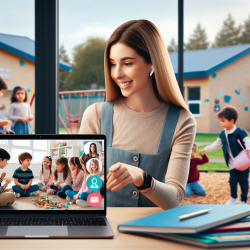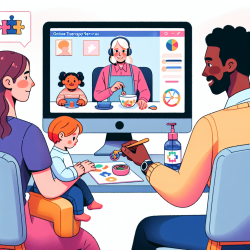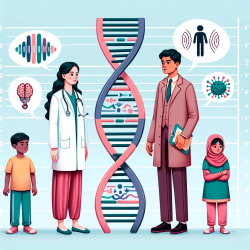As practitioners dedicated to the development and well-being of children, understanding the complexities of peer interactions in children with Developmental Language Disorder (DLD) is crucial. The systematic review titled What Are the Peer Interaction Strengths and Difficulties in Children with Developmental Language Disorder? A Systematic Review offers valuable insights that can guide our practice and encourage further research.
DLD affects approximately 7.6% of children aged 4-5 in the UK, impacting their expressive and receptive language skills. These challenges often extend to their social interactions, affecting their ability to form and maintain peer relationships. The review by Lloyd-Esenkaya, Russell, and St Clair (2020) highlights both the strengths and difficulties these children experience in peer interactions.
Key Findings:
- Children with DLD often face difficulties in turn-taking and accessing play with peers.
- Despite these challenges, many children with DLD can form friendships and engage in social pretend play.
- Peer interaction difficulties are not uniform; some children with DLD exhibit typical social profiles.
For practitioners, these findings underscore the importance of individualized approaches when supporting children with DLD. Here are some strategies based on the review's outcomes:
1. Encourage Social Play: Utilize structured play activities that promote turn-taking and cooperative play. Activities that require children to make joint decisions can enhance their verbal and non-verbal communication skills.
2. Focus on Strengths: Identify and build on each child's social strengths. If a child excels in non-verbal communication, integrate these skills into social interactions to boost confidence and engagement.
3. Develop Tailored Interventions: Given the heterogeneity in social skills among children with DLD, interventions should be personalized. Assess each child's specific needs and design interventions that target their unique challenges and strengths.
4. Foster a Supportive Environment: Educate peers about DLD to create an inclusive environment. Peer education can reduce instances of bullying and promote understanding and acceptance.
Encouraging further research in this area is also essential. The current evidence base, while insightful, is disparate and requires more high-quality studies to fully understand the social dynamics of children with DLD. Practitioners can contribute to this knowledge base by documenting and sharing successful intervention strategies and outcomes.
To read the original research paper, please follow this link: What Are the Peer Interaction Strengths and Difficulties in Children with Developmental Language Disorder? A Systematic Review.










